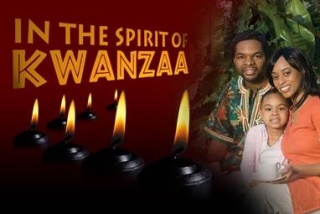Black PR Wire Newsroom
1-877 BLACKPR (252-2577)
newsroom@blackprwire.com
Kwanzaa is an annual holiday affirming African family and social values that is celebrated primarily in the United States from December 26 to January 1. Both the name and the celebration were devised in 1966 by Maulana Karenga, a professor of Africana studies at California State University in Long Beach and an important figure in Afrocentrism. Karenga borrowed the word kwanza, meaning “first,” from the Swahili phrase matunda ya kwanza, adding the seventh letter, an extra a, to make the word long enough to accommodate one letter for each of the seven children present at an early celebration. (The name Kwanzaa is not itself a Swahili word.) The concept of Kwanzaa draws on Southern African first-fruits celebrations.
Although Kwanzaa is primarily an African American holiday, it has also come to be celebrated outside the United States, particularly in Caribbean and other countries where there are large numbers of descendants of Africans. It was conceived as a nonpolitical and nonreligious holiday, and it is not considered to be a substitute for Christmas.
Each of the days of the celebration is dedicated to one of the seven principles of Kwanzaa: unity (umoja), self-determination (kujichagulia), collective responsibility (ujima), cooperative economics (ujamaa), purpose (nia), creativity (kuumba), and faith (imani). There also are seven symbols of the holiday: fruits, vegetables, and nuts; a straw mat; a candleholder; ears of corn (maize); gifts; a communal cup signifying unity; and seven candles in the African colours of red, green, and black, symbolizing the seven principles. On each day the family comes together to light one of the candles in the kinara, or candleholder, and to discuss the principle for the day. On December 31, families join in a community feast called the karamu. Some participants wear traditional African clothing during the celebration.

